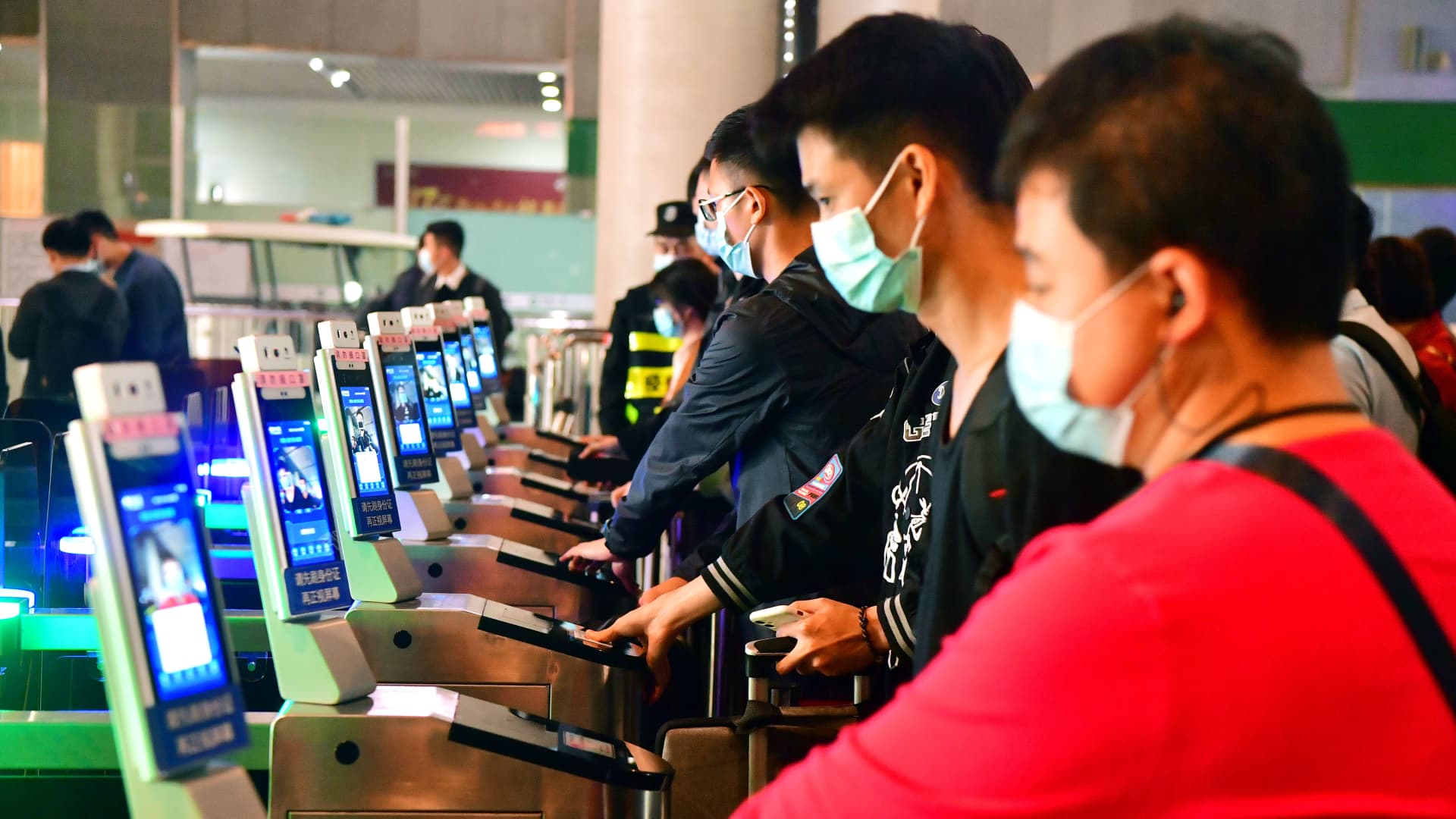China releases plans to restrict facial recognition technology


Passengers swipe ID cards to exit Fuzhou South Railway Station on Dec. 16, 2021. The process doesn’t require passengers to remove masks for facial recognition.
China News Service | China News Service | Getty Images
BEIJING — China is planning to restrict businesses’ use of facial recognition technology in favor of non-biometric personal identification methods, according to draft rules from the Cyberspace Administration released Tuesday.
The proposed policy requires individual consent, and a specific purpose, for using facial recognition.
“If there are non-biometric verification technology for achieving a similar purpose or business requirements, those non-biometric verification methods should be preferred,” the draft said in Chinese, translated by CNBC.
However, individual consent isn’t required for certain administrative situations, which the draft did not specify. If facial recognition is used, the proposed rules encourage use of national systems.
Installation of image collection and personal identification equipment in public places should be for the purpose of maintaining public safety, the draft rules said, noting clear signage is required.
How facial recognition is being tested
Businesses in China have experimented with using facial recognition for payment at convenience stores.
Some apartment compounds have installed facial recognition systems to allow tenants to enter by just scanning their faces. Some subway turnstiles in Beijing have installed what appear to be facial recognition scanners, but they remain covered up.
At high-speed train stations, Chinese ID holders can simply swipe their ticket-linked ID cards to enter the train station and platform — sometimes with the assistance of facial recognition.
Where the tech may be restricted
Airports, hotels, stations, banks, stadiums, exhibition halls and other business establishments should not use facial recognition to verify personal identity, unless required by law, the Cyberspace Administration of China said in its proposed rules.
The draft did not specify the law’s requirements, but said businesses should not require people to use facial recognition to receive better services.

Building management cannot use facial recognition as the only way for people to enter or exit, the draft said, noting if individuals don’t agree to facial recognition, management should provide other “reasonable and convenient” methods.
Hotel rooms, public bathrooms, changing rooms and bathrooms must not install equipment for collecting images or personal information, the proposed rules said.
The draft is open for public comment until Sept. 7.
Last week, China’s increasingly powerful cybersecurity regulator released draft rules for restricting minors’ phone screen time and boosting personal data protection requirements. The proposed rules are open to public comment.









